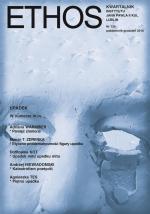 zobacz powiększenie | DOI 10.12887/31-2018-4-124-13 Cena brutto: 7,00 PLN |
|
Catastrophism is a concept often used in Polish historical-literary discourse, but the frequency of the occurrence of this term does not go hand in hand with its precision. The article is an attempt to disambiguate it (following the concept of Edward Balcerzan) as a term meaning strictly poetic convention rather than a ‘view’ or ‘world-view attitude.’ The paper is also an attempt to determine the time frame of catastrophism in modern Polish poetry with culmination between 1930 and 1943, ordering its variations due to: the type and extent of catastrophic ‘fantasies,’ the consequences of the catastrophe, and temporal construction. This ordered phenomenon presents itself as an important part of modern Polish poetry, which, together with other aesthetics, marks the moment of the solstice in the middle of the 20th century. A separate issue is the problem of the presence of poetic catastrophe in post-war poetry up to the present times. Researchers using the term ‘poetic catastrophe’ in relation to contemporary poetic phenomena treat it very freely. The confrontation of works considered by them as catastrophic with the convention of catastrophic poetics indicates that there are free connections rather than a simple continuation of the pattern. Such references can be found in the late works of Czesław Miłosz and Jerzy Zagórski, in the works of Tadeusz Różewicz, Zbigniew Herbert, Rafał Wojaczek, poets of Nowa Fala, Bronisław Maj, Jan Polkowski, and Marcin Świetlicki. The poems of the latter question the sense of using the catastrophic convention in the face of mental changes taking place in the post-modern world. Keywords: catastrophism, ‘end of the world,’ modernism, a poetic worldview, immanent poetics, second Avant-garde Contact: Zakład Literatury XX i XXI Wieku, Instytut Filologii Polskiej, Wydział Humanistyczny, Uniwersytet Marii Curie-Skłodowskiej, pl. Marii Curie-Skłodowskiej 4, 20-031 Lublin, Poland Pliki do pobrania: » 124_Niewiadomski.pdf | |
